Communist bard's bid to recover Mahabharata from religion
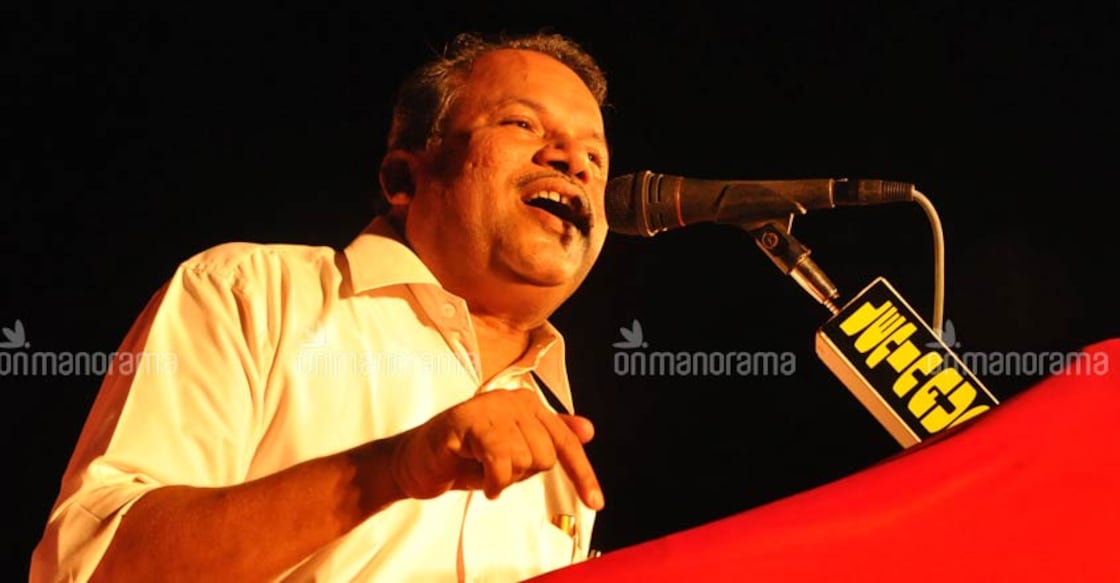
Mail This Article
Former agriculture minister and CPI leader Mullakkara Ratnakaran has taken up with aplomb a task that the CPM wanted to but could not. He has become the first Left leader, after the legendary Marxist ideologue N E Balram, to demystify the great epics.
Last Ramayana month, the CPM had big plans to strip the Ramayana of its religious opulence, and free it from the self-serving interpretations of the Hindutva forces. The party had banked on radical speakers like Sunil P Ilayidom and M M Somasekharan to do the job for them. The cynics, however, saw a bunch of atheists hankering after the Gods. The ridicule was so heavy that the Marxists quickly distanced themselves from the initiative.
When the commotion subsided, Mullakkara walked up to the pulpit. Barely three months after the Ramayana month, unmindful of how the world might perceive him, the CPI leader launched a series of lectures on Mahabharata. The Soorya Festival was his first stage.
Mullakkara's debut series was based on seven prominent characters in Mahabharata: Sathyavathi, Bheeshma, Karna, Panchali, Yudhishtir, Krishna, and Hidumbi. He would take up one character a day, each session lasting for about one-and-a-half hours. No one made fun of him. People just kept asking for more.
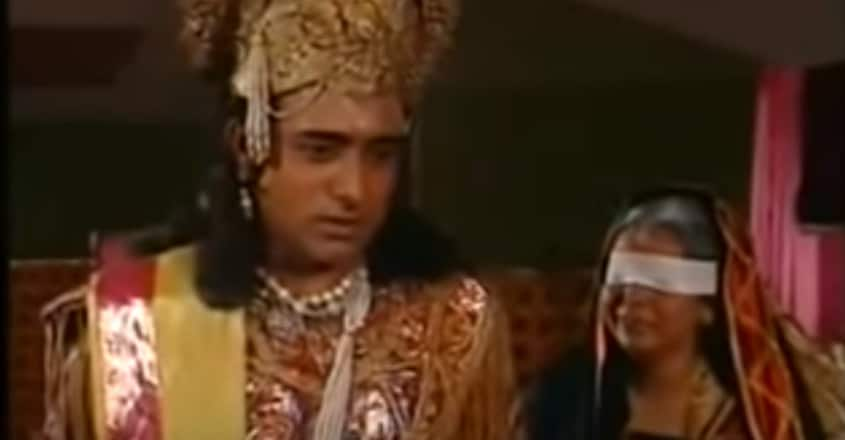
Mullakkara does not approach Vyasa's characters with awe or contempt. He speaks of them as though he was narrating the stories of crows and tortoises and tigers and pot-bellied misers in a Panchatantra tale. All of them are likeable, even Duryodhana. “You think he is bad. But first understand the conditions in which he grew up, and then decide,” Mullakkara said. His 'Duryodhana' will be unveiled on February 22.
All of them can be infuriating too, even Krishna. “When Gandhari removed her black eye-cover for the first time, it was not to see the severed bodies of her sons scattered on the battlefield but to curse Krishna, the man who could have stopped the war but still didn't,” Mullakkara said during his discourse on Gandhari on February 13.
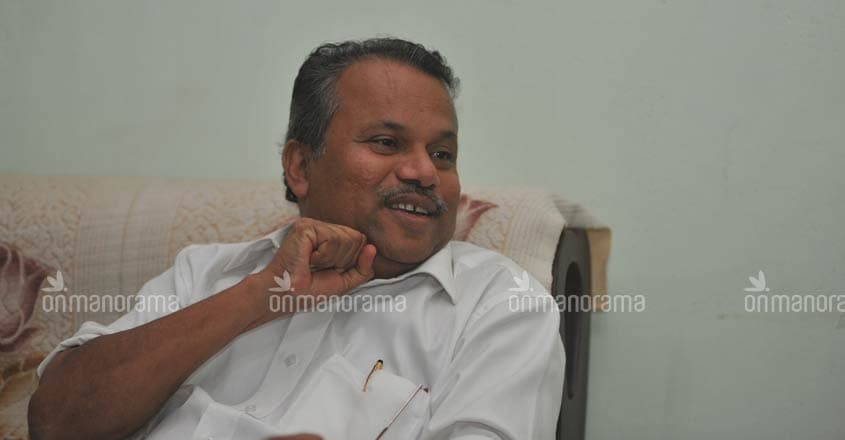
And from each of these stories he pulls out lessons for practical living. “It was her control of her senses, in her case the sight, that gave Gandhari a moral compass that can be matched only by Vidurar in the Mahabharata story,” Mullakkara said.
He also makes certain radical observations to chastise the present. Speaking of Draupadi, he said she was a celestial beauty but black. “Most of the men and women in Mahabharata are black. It must have been later that beauty was defined in terms of black and white. Today advertisements ask us to apply a particular cream so that we too can turn white. Such perceptions of beauty have been forced on us,” he said.
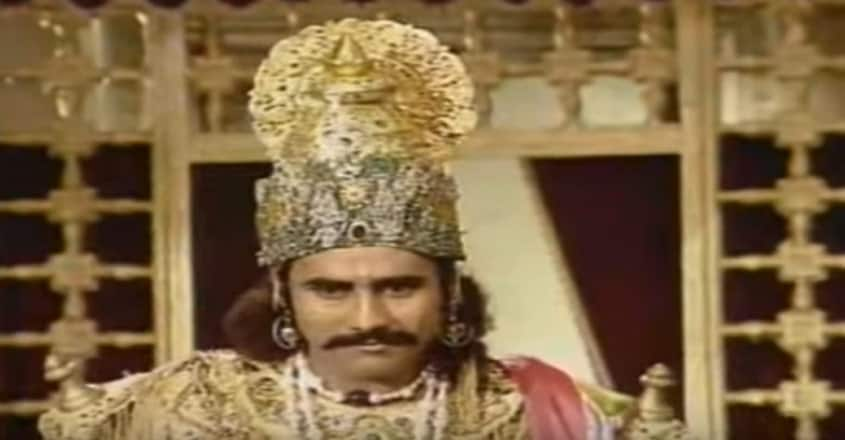
He also throws up human, but highly plausible, explanations for some of the superhuman feats in the epic. Take for instance the Panchali Swayamvara. The contestants had to first pick a bow that was so heavy that kings and princes holding it either fell down and got crushed under, or staggered like a drunkard. Holding such a bow above their heads they had to shoot the arrow right through the eye of a bird that was revolving fast on a disk placed on top. And this had to be done looking at the reflection of the revolving bird on the water below.
Why would you think only Arjun could win the contest? There were stronger men at the swayamvara, and sharpshooters as good as him. Vyasa even says that many had missed by a whisker. “It was because while all the others were seduced by Panchali, Arjun alone was seduced by the eye of the revolving bird. This was also the reason why Panchali yearned for Arjuna. While others were busy ogling her, she found Arjuna alone looking away, his eyes transfixed on the target,” Mullakkara said. “She chose wisely,” he said.
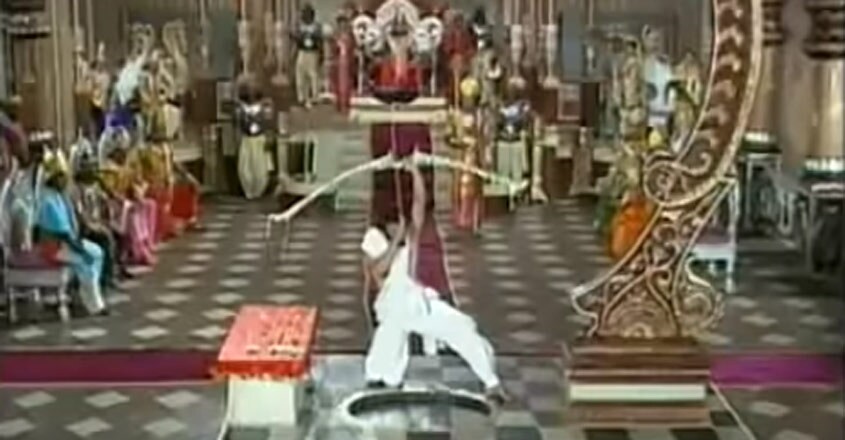
Such was the response to his debut discourse series that Soorya Krishnamoorthy had to make a promise to his patrons that Mullakkara would be invited next year to the Soorya Festival. The CPI, too, could not remain immune to the buzz surrounding Mullakkara's Mahabharata discourse. His second discourse series has been organised by the party itself.
The new series will be based on three other equally important characters: Gandhari, Duryodhana and Arjuna. “I had spoken of Sathyavathi before but I thought the maternal soul of the Mahabharata was in Gandhari,” Mullakakra said. His manner of speaking is so earnest that he can make even the far-fetched connection convincing.

“Jawaharlal Nehru's idea of non-alignment comes from Gandhari,” he said. “When her son Duryodhana comes to seek her blessings before he rides out for the Kurukshetra war, she does not say that he will win. She just says 'Yato Dharma Tato Jaya'. When Nehru said he will not align with the American or Russian blocs, he was just saying that he was with the truth,” Mullakkara said. For this adherence to dharma, he likens Gandhari to Gandhi. All of a sudden, a new light is shone on the similarities in the name.
The former minister said he was inspired by Sukumar Azhikode to begin his Mahabharata discourse. “I was lucky to have long discussions with Azhikode sir during his last days. I had told him that his speeches after the destruction of Babri Masjid had helped give the state an ideological clarity. He then told me that the best way to beat back fundamentalist forces was to spread all that is positive in our epics,” he said.


